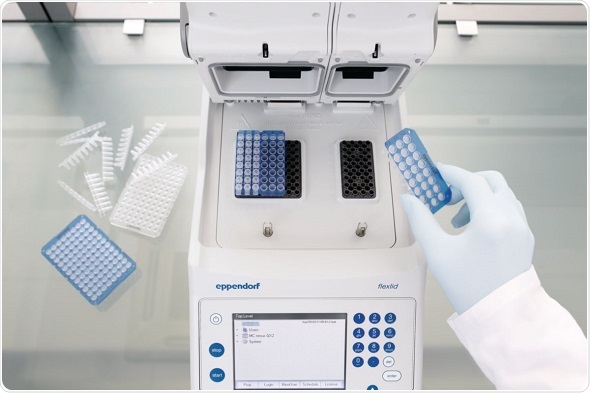The Mastercycler nexus X2 gives you the ability to run two totally independent protocols at the same time. Smaller assays fit nicely on the 32-well-block – larger assays can exceed 48 samples and run on the 64-well-block. The larger block is available with a gradient function.
As every member of the Mastercycler nexus family, the Mastercycler nexus X2 can be combined with all other family members in a network of up to 3 units. In combination with Eppendorf’s PCR Tubes, PCR Strips or divisible plates, the Mastercycler nexus X2 will give you consistent and publishable results – every day!
Flexlid Concept
Due to the flexlid concept, the cycler can deal with all types of PCR consumables, from low volume all the way up to 0.5 mL PCR tubes. Of course, all common PCR plates fit – and if your throughput becomes even higher, you can just connect one or two Mastercycler nexus eco to your Mastercycler nexus.

Gradient with SteadySlope® technology
The gradient option of the Mastercycler pro features the SteadySlope® technology to ensure that the heating and cooling ramp rates are identical in both gradient and normal operation.
Thus, you can expect identical temperature control characteristics in both optimization and routine experiments. Programming the gradient with the Control Panel and the CycleManager pro is easy and intuitive – so that novice users can get started quickly and safely.
Certified Quality
All Eppendorf cyclers follow these quality guidelines:
- Individual, documented quality control certificates
- Calibration accordingly to national and international standards: NIST (USA), DKD/PTB (Germany), UKAS/NPL (UK)
- UL/cUL listed
Features
- Large block for large assays – small block for small assays
- Intuitive graphic programming
- Universal block for strips, 0.1 mL, 0.2 mL and 0.5 mL PCR tubes
- Small footprint
- Optional gradient for PCR optimization
- E-mail notification
- flexlid® concept allows use of all types of consumables with automatic height adjustment of the lid
Applications
- Standard PCR
- Cycle sequencing
- Optimizing a PCR